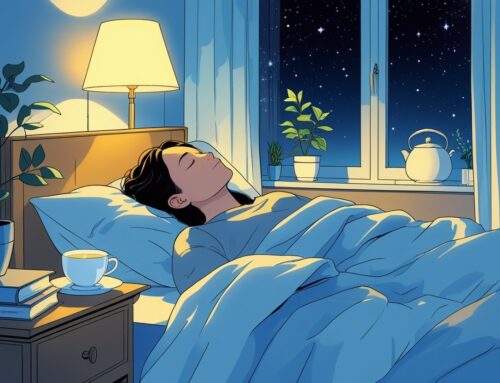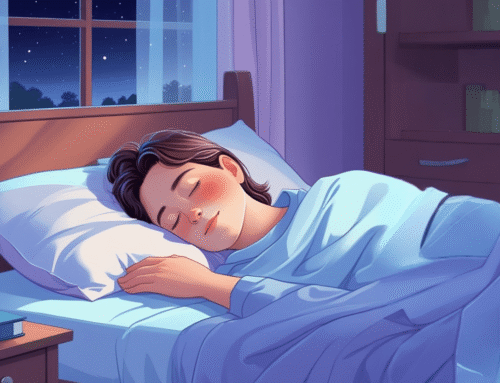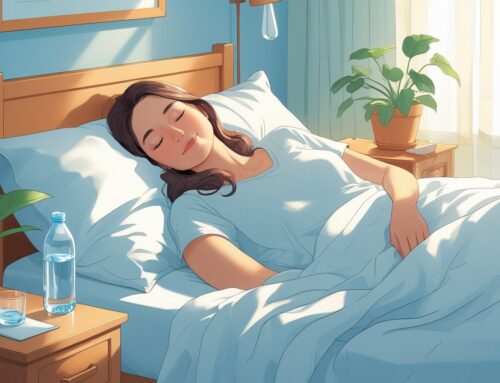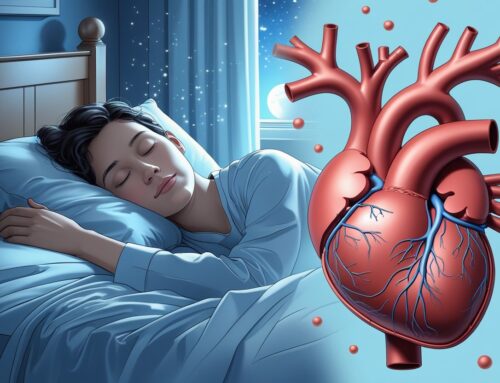Sleeping for 12 hours regularly may signal that the body needs to recover from more than just fatigue. This amount of sleep links to underlying health conditions, sleep disorders, or lifestyle choices that interrupt normal sleep patterns. The body could be sending a message that something isn’t right.
People who sleep 12 hours or more wake up feeling tired or groggy. Poor sleep quality, medication side effects, or mental health issues like depression may explain why. Recognizing these signs helps determine whether the extra sleep is a temporary phase or a red flag that calls for medical attention.
Key Takeaways
- Sleeping for 12 hours may point to health or sleep-related concerns.
- Oversleeping often leads to tiredness despite extended rest.
- Tracking sleep habits supports better control and helps reduce excessive sleep.
- Poor mattress comfort disrupts deep sleep cycles, which may lead to spending extra hours in bed to feel rested.
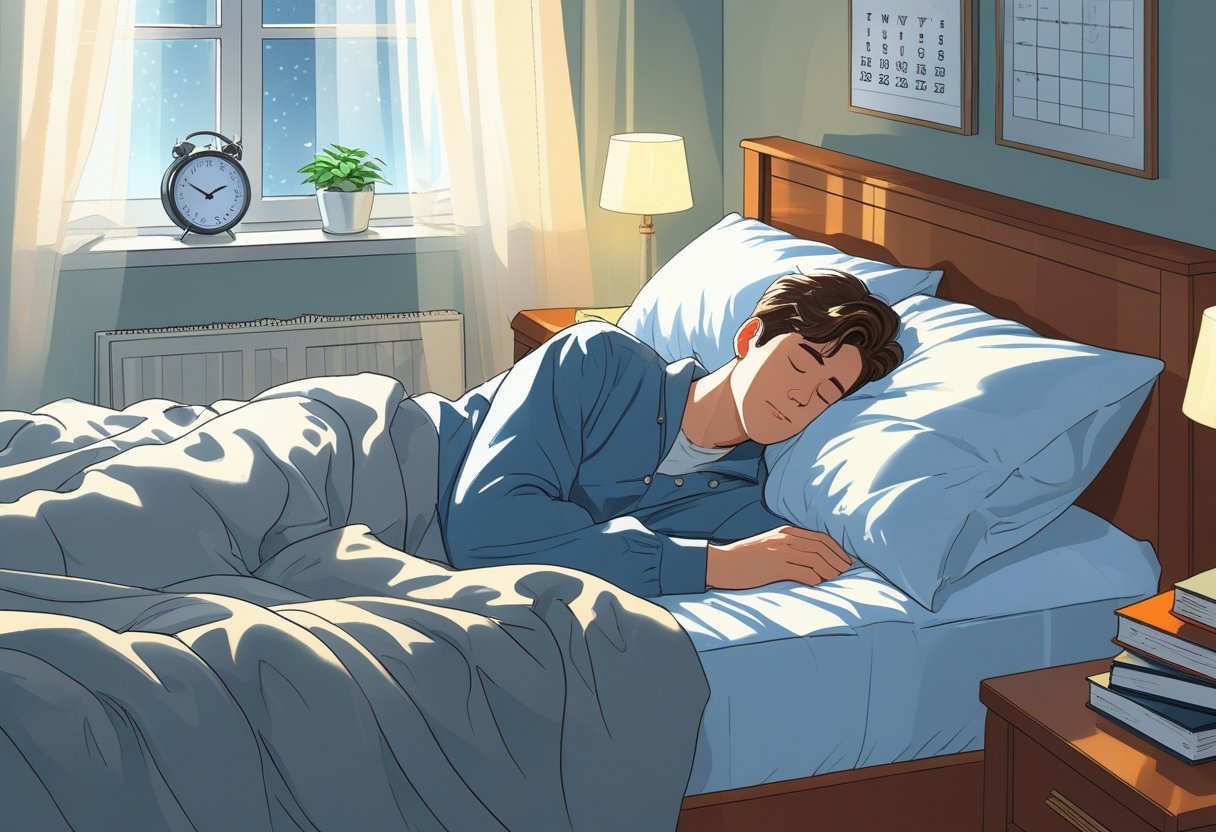
What Is Oversleeping?
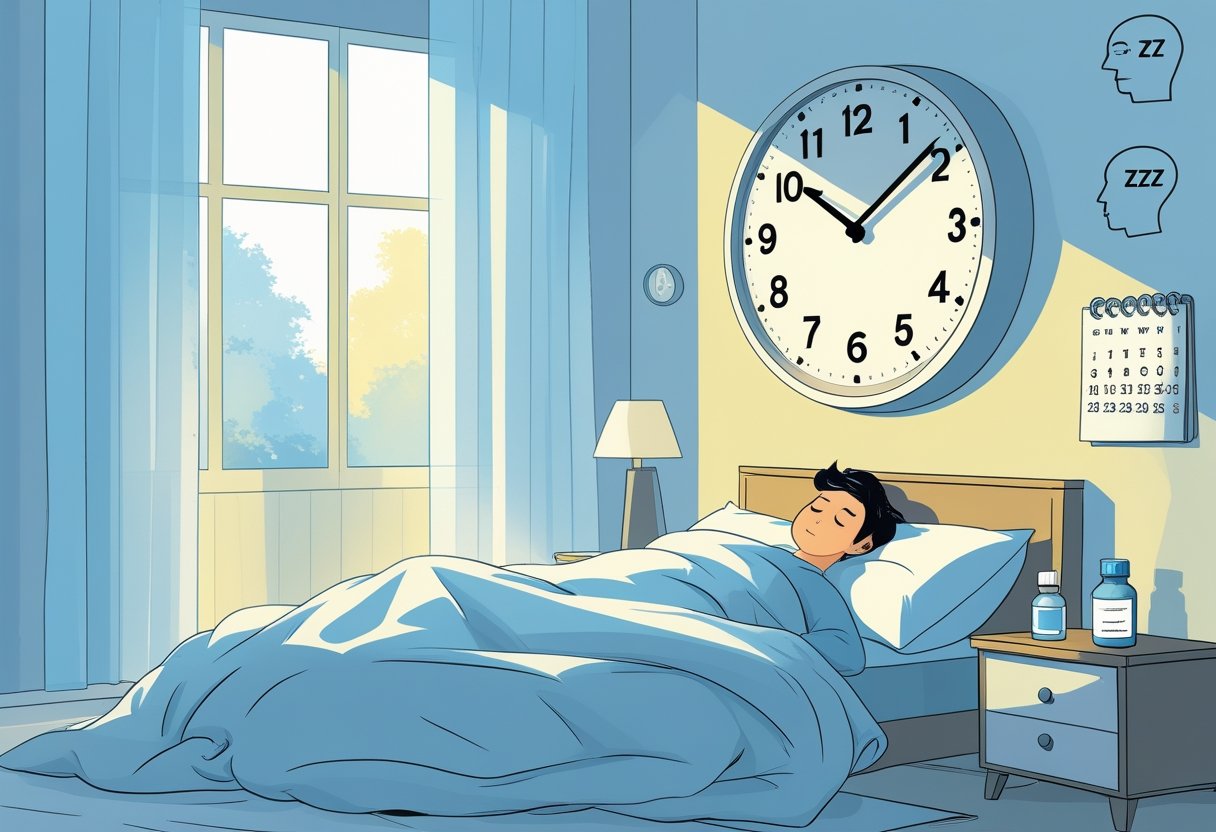
Sleeping too much or longer than usual can affect a person’s health and daily routine. Oversleeping refers to regularly getting more sleep than the body typically needs, which may still leave a person feeling tired after waking.
Definition of Oversleeping
Oversleeping typically means sleeping more than nine hours in a 24-hour period. Although a longer rest may follow illness or sleep deprivation, doing so consistently could point to an underlying health concern. It involves sleeping excessively, usually 12 hours or more per night, without feeling rested or alert afterward.
Someone who regularly sleeps 12 hours a day or more may have hypersomnia. This condition may relate to medical issues, mental health disorders, or irregular sleep schedules. Knowing what qualifies as oversleeping can help determine whether to seek medical attention.
Normal vs. Excessive Sleep Duration
Most adults need between seven and nine hours of sleep each night. Falling short of this range can cause fatigue and impact overall well-being. On the other hand, regularly sleeping more than nine hours is excessive.
Children and teenagers need more rest, but once someone reaches six years old, sleeping 12 or more hours consistently falls outside normal recommendations. Excessive sleep may lead to reduced energy, headaches, or memory problems.
Here is a simple comparison:
Adults (18–64 years old)
- Recommended sleep: 7–9 hours
- Oversleeping threshold: More than 9 hours
Teenagers
- Recommended sleep: 8–10 hours
- Oversleeping threshold: More than 10 hours
Children
- Recommended sleep: 9–14 hours (varies by age)
- Oversleeping threshold: More than the recommended range
Recognizing Patterns of Oversleeping
To find out if they sleep too much, a person can track their sleep over several days or weeks. Sleeping 12 hours a day on a regular basis often signals oversleeping. They may still feel tired after all that sleep or struggle to wake up. This pattern sometimes connects to sleep disorders, depression, or side effects from medication. Paying attention to how one feels during the day can reveal if oversleeping plays a role.
If someone asks, “Why do I sleep for 12 hours?” they should consider a medical evaluation, especially if this continues for weeks and begins to interfere with daily routines. Persistent long sleep tends to point to something deeper than just a habit; it could reflect an underlying issue that needs attention.
Common Causes of Sleeping for 12 Hours
Sleeping for 12 hours ties to specific reasons such as problems with sleep patterns, shifts in daily routines, health conditions, or emotional well-being. Understanding these causes helps explain why someone suddenly sleeps longer or frequently needs extra rest.
Sleep Disorders
Sleep disorders frequently explain why someone oversleeps or suddenly needs more sleep. Conditions like sleep apnea interrupt breathing during sleep, causing fatigue during the day. Those affected usually extend their sleep to feel rested. Narcolepsy causes extreme daytime drowsiness and sudden sleep episodes. Restless leg syndrome disrupts sleep as well, prompting the body to demand more rest.
These symptoms usually lead people to ask, “Why do I sleep so long?” or “Why have I been sleeping so much?” since their bodies fail to get quality rest. Addressing and treating these conditions is essential in resolving sleep issues.
Lifestyle and Environmental Factors
Lifestyle changes can lead to frequent oversleeping. Shift work, for instance, disrupts the body’s internal clock, increasing sleep demands. Irregular bedtimes or excessive screen use at night also interfere with sleep quality.
Oversleeping due to lifestyle usually stems from habits like:
- High caffeine or alcohol intake
- Low physical activity
- Major life changes or chronic stress
These factors help explain sudden sleep increases despite long hours in bed. Adjusting routines tends to restore healthy sleep timing.
Medical Conditions Linked to Oversleeping
Several medical conditions trigger prolonged sleep. Hypothyroidism, which slows metabolism, leaves people feeling drained, extending sleep hours. Other culprits include infections, chronic fatigue syndrome, and neurological issues. Some medications also cause drowsiness and longer sleep durations.
When someone asks, “Why do I oversleep?” a full medical checkup becomes necessary. Getting the right diagnosis matters, since untreated issues can make the problem worse.
Psychological and Emotional Factors
Mental health has a strong effect on sleep. Depression often leads to sleeping longer as the body tries to shut out low mood or exhaustion. Anxiety and stress can break up sleep, causing people to sleep more in hopes of feeling restored. Sudden changes in sleep habits sometimes point to deeper emotional struggles. People asking, “Why am I sleeping too much all of a sudden?” may be dealing with internal stress or emotional overwhelm.
Therapy, regular movement, and other lifestyle shifts usually help balance sleep when mental health plays a role. Rest often improves once emotional stability returns.
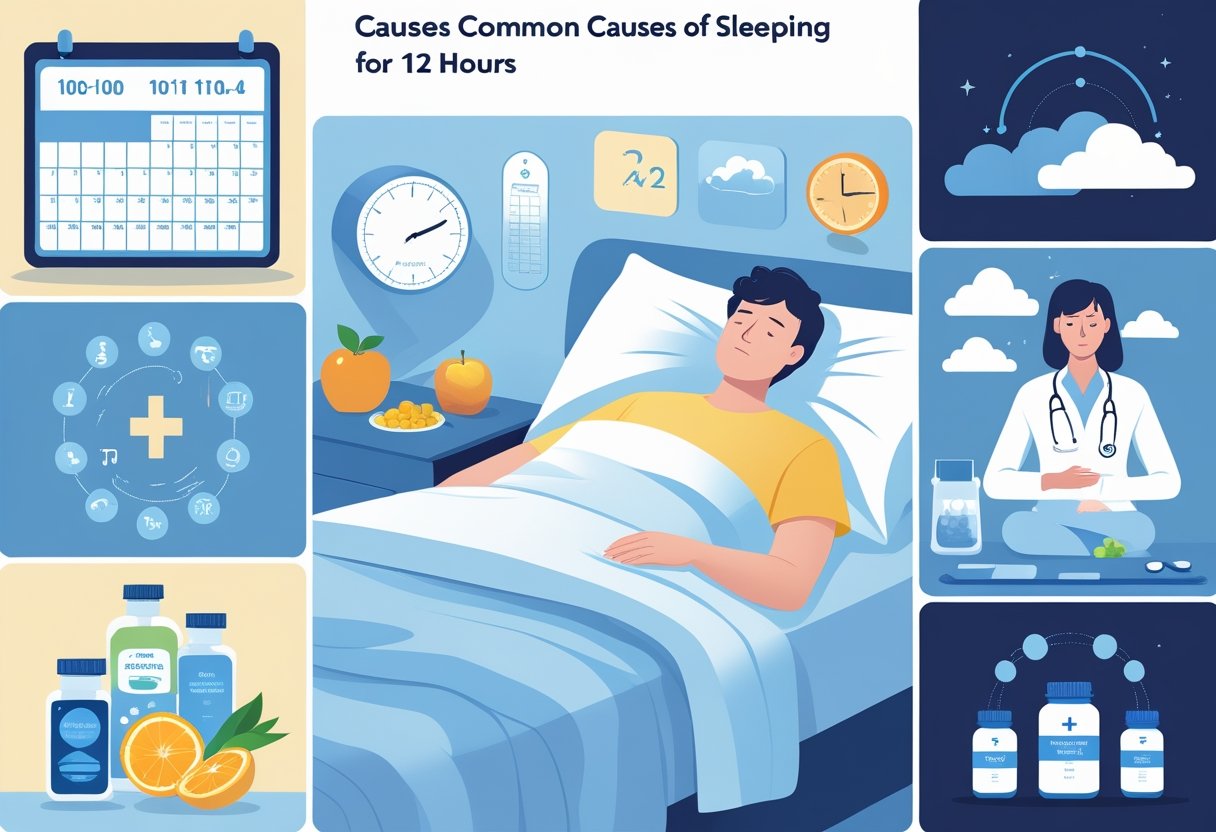
Oversleeping Symptoms and Warning Signs
Sleeping for 12 hours or more can lead to noticeable effects on both the body and mind. Recognizing these signs helps determine whether excessive sleep is impacting overall health. Symptoms may appear physically or show through shifts in thinking and mood.
Physical Symptoms
People who sleep too much feel tired even after a long rest. They may experience headaches, muscle aches, or a heavy sensation throughout the body. Oversleeping tends to disrupt the body’s natural rhythms, which leads to lingering fatigue during the day. Other signs include unexplained weight gain and a weakened immune system. These issues can raise the risk of catching colds or other infections. Some individuals also report grogginess or low energy despite getting extended sleep.
Regularly sleeping more than nine hours may be linked to conditions such as diabetes or heart problems. These health issues often worsen if oversleeping continues unchecked. Consulting a doctor is important when long sleep is accompanied by persistent physical symptoms.
Cognitive and Emotional Effects
Too much sleep can interfere with memory and focus. Many people notice difficulty thinking clearly or completing simple tasks after sleeping for long hours. This affects productivity and complicates daily responsibilities.
Oversleeping may also trigger mood shifts such as depression, anxiety, or irritability. These emotional changes could stem from disrupted sleep cycles or signal deeper health concerns. It can also point to mental health conditions or undiagnosed sleep disorders. Monitoring sleep patterns provides better insight and shows when it’s time to seek professional support. Early intervention helps prevent symptoms from worsening over time.
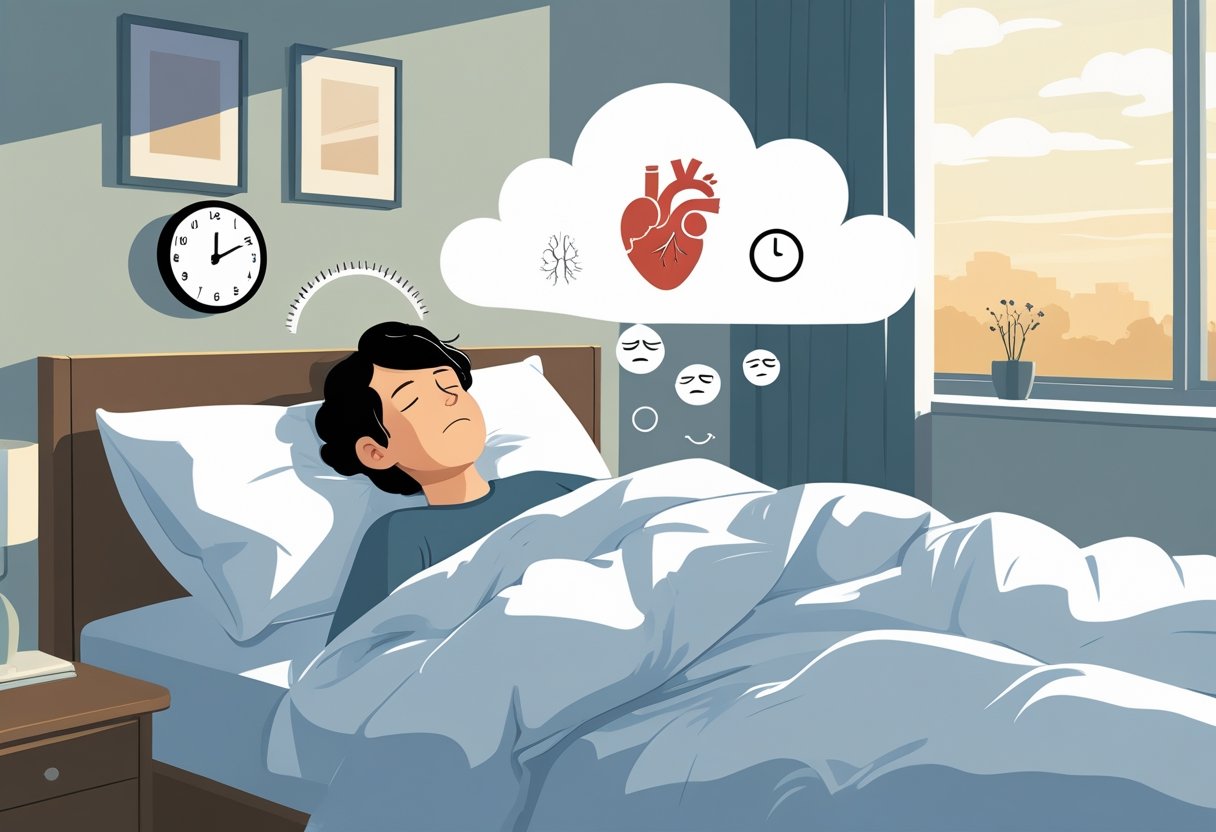
Effects of Sleeping Too Much
Sleeping for long hours on a regular basis affects many areas of life and health. It disrupts daily routines, causes persistent tiredness, and increases the risk of serious health problems over time.
Short-Term Impact on Daily Life
Sleeping too much, 12 hours or more, can lead to grogginess and poor focus. This makes tasks like working or studying more difficult. Many people sleep 14 hours a day yet still feel tired. This pattern lowers motivation, slows reaction time, and raises the risk of accidents. It also interferes with social life, as oversleeping shifts one’s schedule and reduces time spent with others.
Some individuals sleep for 24 hours straight, either occasionally or more frequently. This leads to confusion and throws off their internal body clock, which makes it hard to return to a regular sleep pattern.
Long-Term Health Consequences
Oversleeping for extended periods increases the likelihood of health conditions such as heart disease, diabetes, and obesity. It may also weaken the immune system. Mental health issues like depression and anxiety both stem from and contribute to sleeping too much. Certain medications or sleep disorders are also important in this cycle.
Sleeping excessively over time affects hormone levels and brain function. This slows metabolism and leads to memory or concentration issues. People who sleep too much on a consistent basis should consider investigating potential underlying health problems.
Daytime Fatigue After Long Sleep
Feeling tired after long hours of sleep surprises many, but it’s a common experience. Sleeping too much disrupts the body’s natural rhythm, which makes sleep less restorative. This can result in daytime fatigue, heaviness, or low energy. Even with 14 hours of sleep, the body may still crave rest due to poor sleep quality.
This cycle of oversleeping and tiredness makes it hard to stay productive. Adjusting sleep habits and speaking with a healthcare provider may help improve energy levels and alertness.
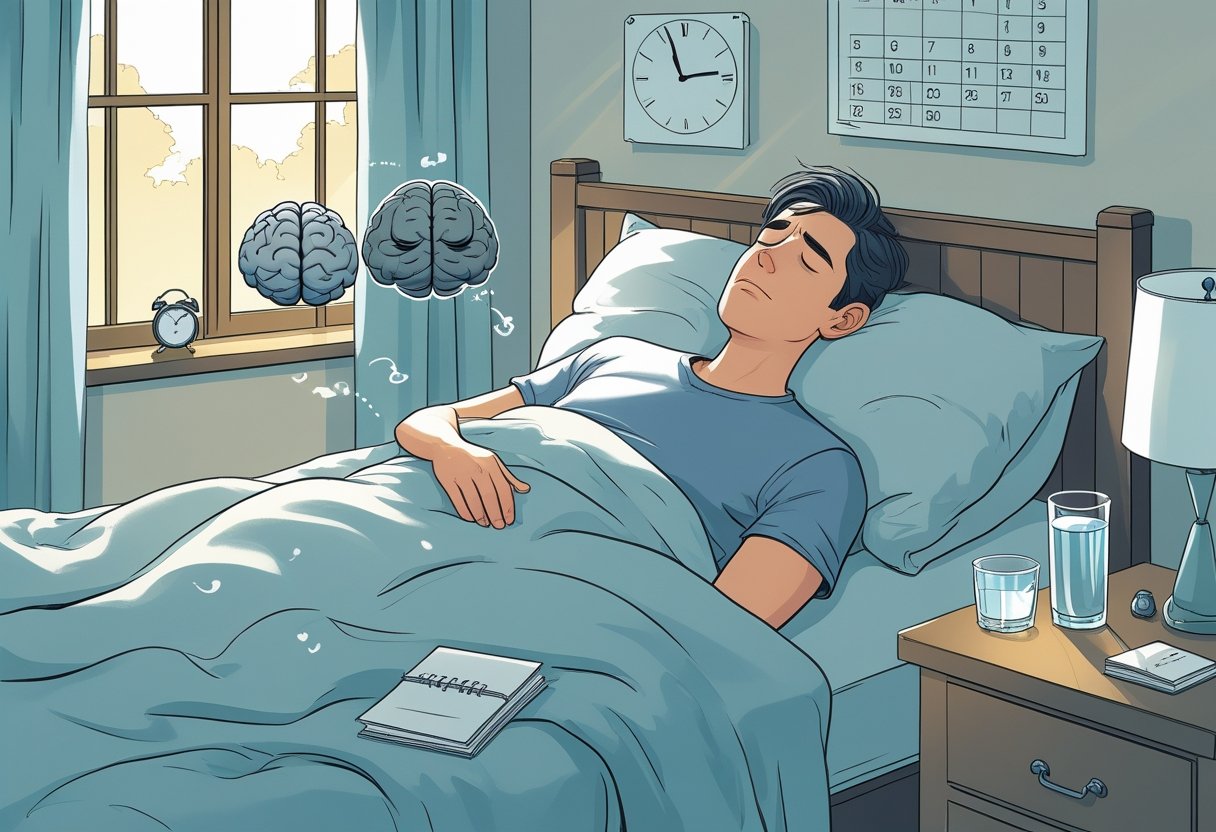
How Much Sleep Is Too Much?
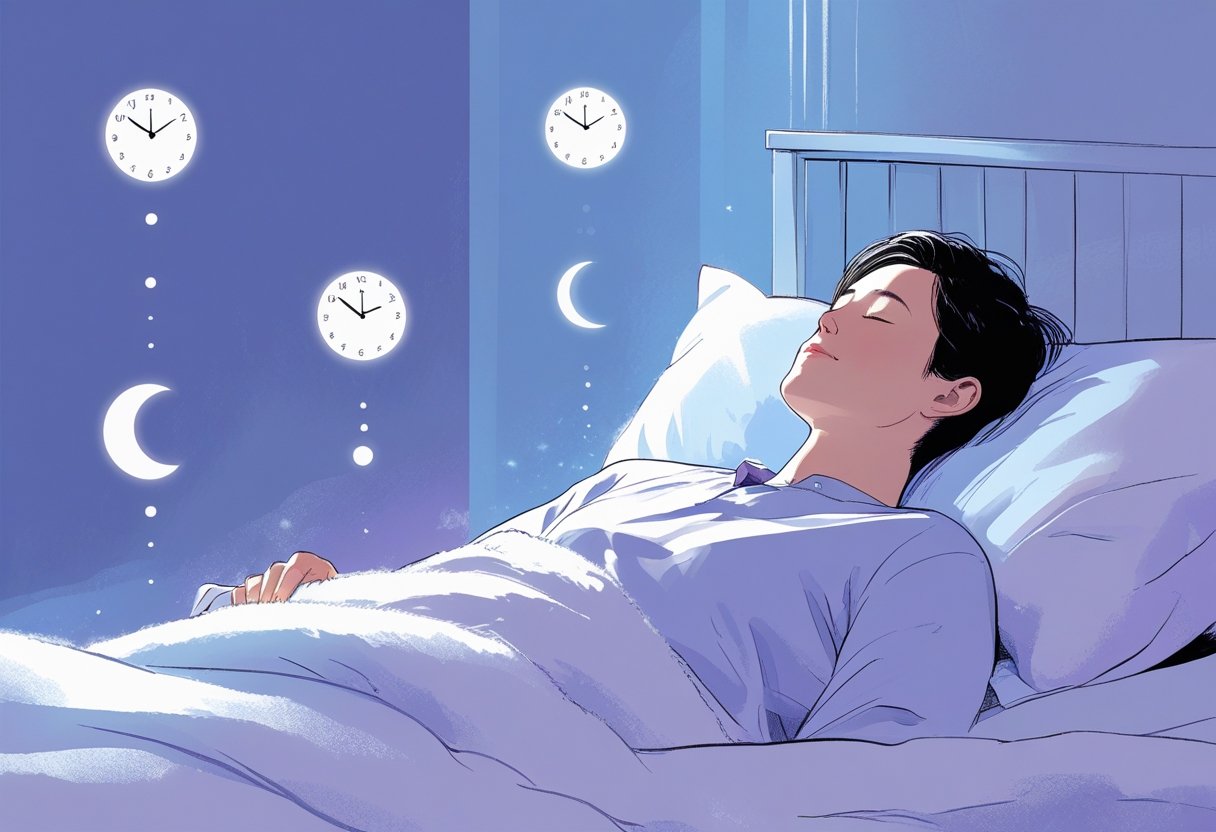
Sleeping too much can cause a problem. Knowing the ideal amount of sleep by age helps spot when sleep becomes excessive. Whether 10 hours is too much depends on your age, lifestyle, and health. It also matters to recognize when extended sleep requires a doctor’s attention.
Recommended Sleep Durations by Age
Sleep needs shift throughout life. The National Sleep Foundation recommends the following daily sleep ranges:
- Newborns (0–3 months): 14–17 hours
- Toddlers (1–2 years): 11–14 hours
- School-age children (6–13 years): 9–11 hours
- Teenagers (14–17 years): 8–10 hours
- Adults (18–64 years): 7–9 hours
- Older adults (65+ years): 7–8 hours
Sleeping more than 9 hours consistently in adults may count as oversleeping. For kids and teens, 10 hours falls within a healthy range to support growth and development.
Is 10 Hours of Sleep Too Much?
Most adults need between 7 and 9 hours of sleep. Regularly sleeping 10 hours or more might leave someone feeling groggy or unrested. This could reflect underlying issues such as poor sleep quality, depression, or certain medical conditions. In contrast, children and teens often require 10 hours or more due to their growth and energy needs. For adults, sleeping this long might point to a disrupted sleep cycle or a disorder like hypersomnia.
If someone wonders, “Why do I sleep 10 hours a night?” It helps to look at other symptoms, such as fatigue, mood swings, or physical discomfort—for answers.
When to Be Concerned About Sleep Length
Sleeping 12 or more hours regularly, especially when still feeling tired, deserves medical attention. Conditions like sleep apnea, chronic fatigue, or depression could be to blame.
It’s time to check in with a doctor if long sleep comes with:
- Extreme fatigue after waking
- Trouble focusing
- Mood changes or low motivation
- Unexplained weight shifts
- Loud snoring or irregular breathing
Keeping track of sleep patterns offers helpful insight. While small changes in sleep habits might help, ongoing or worsening oversleeping calls for professional guidance.
Why Am I Sleeping So Much on My Days Off?
People sleep longer on their days off to recover from sleep loss during the week. If someone lacks rest during workdays, the body tries to make up for it by extending sleep on free days. This additional sleep helps reduce what’s known as sleep debt.
Sleeping more on days off may also be caused by stress or an inconsistent sleep routine during the week. Difficulty falling or staying asleep on work nights often leaves a person exhausted and in need of extra rest when they don’t face an early start.
Improving sleep hygiene during the week can support better rest. Turning off screens before bed, sticking to a consistent bedtime, or jotting down tasks for the next day can promote a more relaxed state and deeper sleep.
Possible Causes of Extra Sleep on Days Off:
- Sleep Debt: Missing sleep during the week leads the body to seek extra rest
- Poor Sleep Quality: Stress or interruptions limit restful sleep
- Changes in Routine: Switching between workdays and free days disrupts sleep patterns
- Recovery from Illness or Medication Effects: Physical issues may temporarily increase the need for sleep
Sleeping longer only on days off is common, but if it occurs frequently or leads to daytime fatigue, consulting a doctor might help. Identifying the reason behind extended weekend sleep can point to better habits and overall well-being.
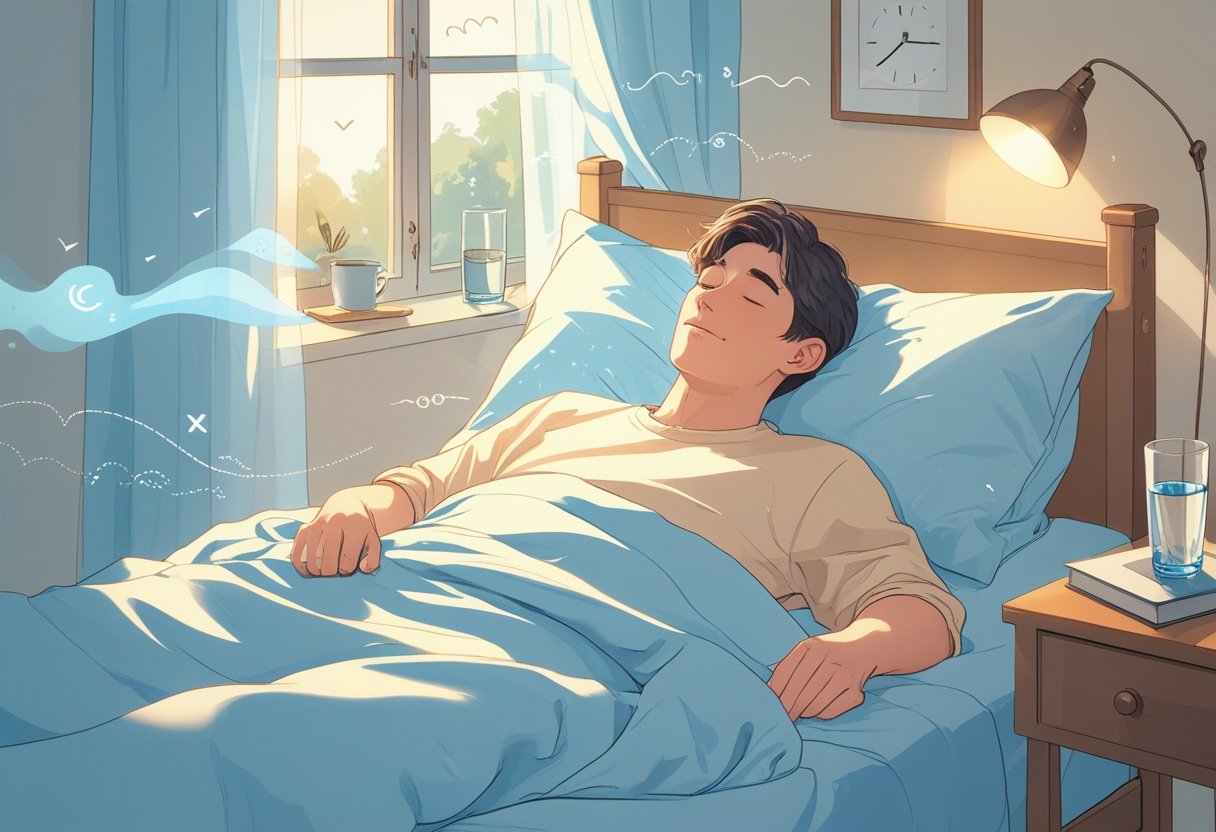
Strategies to Reduce Oversleeping
Reducing oversleeping requires practical changes to daily habits and knowing when to seek help. Paying attention to factors like sleep quality, daily routines, and health conditions also help in managing sleep duration.
Improving Sleep Hygiene
Good sleep hygiene means establishing habits that help the body fall asleep and wake up naturally. This includes keeping the bedroom dark, quiet, and cool. Avoiding screens and bright lights at least an hour before bed prevents disruptions in the body’s internal clock.
Limiting caffeine and heavy meals late in the day supports better sleep. Regular exercise, as long as it does not occur too close to bedtime, improves sleep quality. Writing a to-do list or journaling before bed clears the mind and reduces stress, which helps avoid oversleeping caused by poor rest.
Establishing a Consistent Routine
A fixed sleep and wake time every day trains the body to follow a steady rhythm. Going to bed and waking up at the same time, even on weekends, helps prevent oversleeping or feeling tired throughout the day.
Aim for 7 to 9 hours of sleep most nights. Keeping naps short, 20 to 30 minutes, avoids interfering with nighttime rest. Tracking sleep patterns reveals if one sleeps excessively and allows adjustments to the schedule, which becomes important when someone feels like “I slept all day” or “I’m sleeping too much.”
When to Seek Professional Help
If oversleeping occurs regularly and causes issues such as fatigue or difficulty functioning, medical advice proves necessary. Sleeping more than 12 hours without clear reasons may signal underlying conditions like sleep apnea, depression, or other health problems.
A doctor might suggest sleep studies or mental health screenings to identify causes. Early diagnosis and treatment prevent risks associated with oversleeping, including weakened immune function or heart complications. Consulting a doctor ensures proper care when lifestyle changes fall short.
How Mattresses Affect Oversleeping
A mattress affects how well someone sleeps. If the mattress feels uncomfortable or causes pain, it can disrupt sleep quality. Poor sleep quality can lead to tiredness, which prompts a person to sleep longer in an effort to catch up.
An old or unsupportive mattress may cause restless nights. This results in frequent waking or failure to reach the deep sleep stages the body requires. Without enough deep sleep, people stay in bed longer, sometimes sleeping 12 hours or more.
Comfort and support are crucial. A mattress that matches a person’s sleeping style and body helps them fall asleep faster and remain asleep throughout the night. This lowers the chance of oversleeping.
Here is a simple list of mattress factors affecting sleep length:
- Firmness: Too soft or too firm causes discomfort.
- Material: Memory foam, latex, or spring mattresses each feel different.
- Age: Older mattresses lose support and can cause aches.
- Temperature regulation: Some mattresses trap heat and disrupt sleep.
Adjusting or upgrading a mattress can improve sleep quality and reduce the need for extended sleep hours. If oversleeping becomes an issue, checking the mattress condition provides a good place to start.
Choosing a mattress designed for balanced comfort and cooling, such as the Helix Dusk, improves sleep quality and reduces the need for extended sleep hours. Adjusting or upgrading a mattress provides a good starting point if oversleeping becomes a concern.
The Helix Dusk features a medium-firm feel that suits a wide range of sleepers by combining pressure-relieving memory foam with responsive coils. Its breathable cover and advanced cooling technology regulate temperature, which reduces heat buildup during the night. This balance of support and comfort promotes uninterrupted rest and helps prevent oversleeping caused by restless or insufficient sleep.

Frequently Asked Questions
Sleeping for 12 hours may occur due to various reasons, including health issues and lifestyle factors. It can affect both the body and mind, and there are ways to explore or manage the underlying cause.

